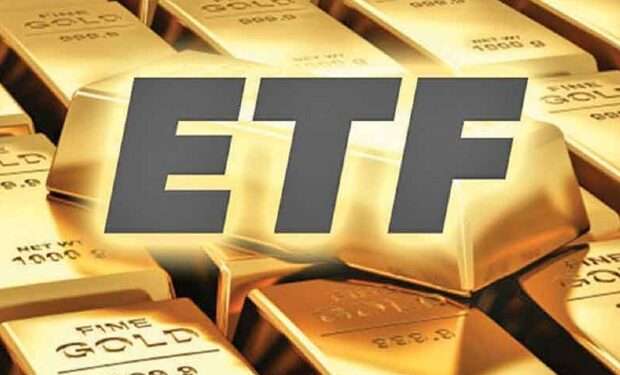The Ghana Stock Exchange (GSE) witnessed a significant trading day on Thursday, January 23, 2025, as NewGold ETF (GLD) recorded a notable loss, shedding GHS22.90 per share.
This represented a 5.16% depreciation, marking the ETF as the sole loser of the session.
NewGold ETF opened the day at GHS443.50 but closed at GHS420.60, reflecting a sharp decline that drew the attention of investors and market analysts. This considerable drop underscores the volatile nature of the ETF market and raises concerns about the short-term performance of NewGold, which has been a preferred choice for investors seeking exposure to gold.
The trading session saw participation from 17 listed equities, but activity on the GSE was subdued compared to the previous day. A total of 152,900 shares were traded, corresponding to a market value of GHS1,192,908.49. These figures represent a dramatic 98% drop in trading volume and a 97% decline in turnover compared to the trading session on Wednesday, January 22.
Among the most actively traded equities, MTN Ghana dominated with a total of 144,568 shares exchanged. Fan Milk followed with 4,041 shares, while NewGold ETF saw a modest 1,860 shares traded. GCB Bank also registered a trading volume of 1,609 shares. Despite the low trading activity, the market capitalization of the Ghana Stock Exchange increased, settling at an impressive GHS114.4 billion.
Interestingly, the losses incurred by NewGold ETF did not impact the GSE’s benchmark indices. The GSE Composite Index (GSE-CI), which tracks the performance of the overall market, remained unchanged at 5,075.92 points. This represents a 1-week gain of 0.4%, a 4-week gain of 4.57%, and a year-to-date gain of 3.83%.
Similarly, the GSE Financial Stocks Index (GSE-FSI), which measures the performance of financial stocks, maintained its position at 2,413.90 points. It recorded a 1-week gain of 1.07%, a 4-week gain of 1.77%, and a year-to-date gain of 1.39%. The stability of these indices suggests that the broader market remained resilient despite the losses experienced by NewGold ETF.
Understanding NewGold ETF’s Decline
The 5.16% drop in NewGold ETF’s share price has raised questions about the underlying factors contributing to this decline. As a commodity-backed exchange-traded fund, NewGold ETF’s performance is closely tied to global gold prices. A sudden dip in gold prices could explain the ETF’s poor performance during the session.
Additionally, investor sentiment and reduced trading activity may have played a role in the price decline. With trading volumes across the GSE hitting a significant low, it appears that cautious sentiment dominated the market, potentially influencing demand for the ETF.
Despite the setback for NewGold ETF, the overall outlook for the GSE remains optimistic. The market capitalization of GHS114.4 billion reflects growing investor confidence, underpinned by the strong performance of major equities like MTN Ghana. MTN’s dominance in trading volume further highlights its appeal to investors seeking stability in a dynamic market environment.
Moreover, the GSE’s benchmark indices have shown consistent growth over the past month, indicating that the market is on an upward trajectory. With the GSE-CI and GSE-FSI posting notable gains, investors can take solace in the broader market’s resilience.
The decline in NewGold ETF’s share price serves as a reminder of the risks associated with commodity-backed investments. While ETFs like NewGold offer a convenient way to gain exposure to precious metals, their performance can be highly sensitive to fluctuations in global commodity markets.
Investors holding positions in NewGold ETF may need to monitor gold prices and broader market conditions closely. For those looking to enter the ETF market, the current dip could present a buying opportunity, provided they have a long-term investment horizon and a strong risk appetite.
READ ALSO: Shatta Wale Discloses How Freedom Concert Impacted Career























